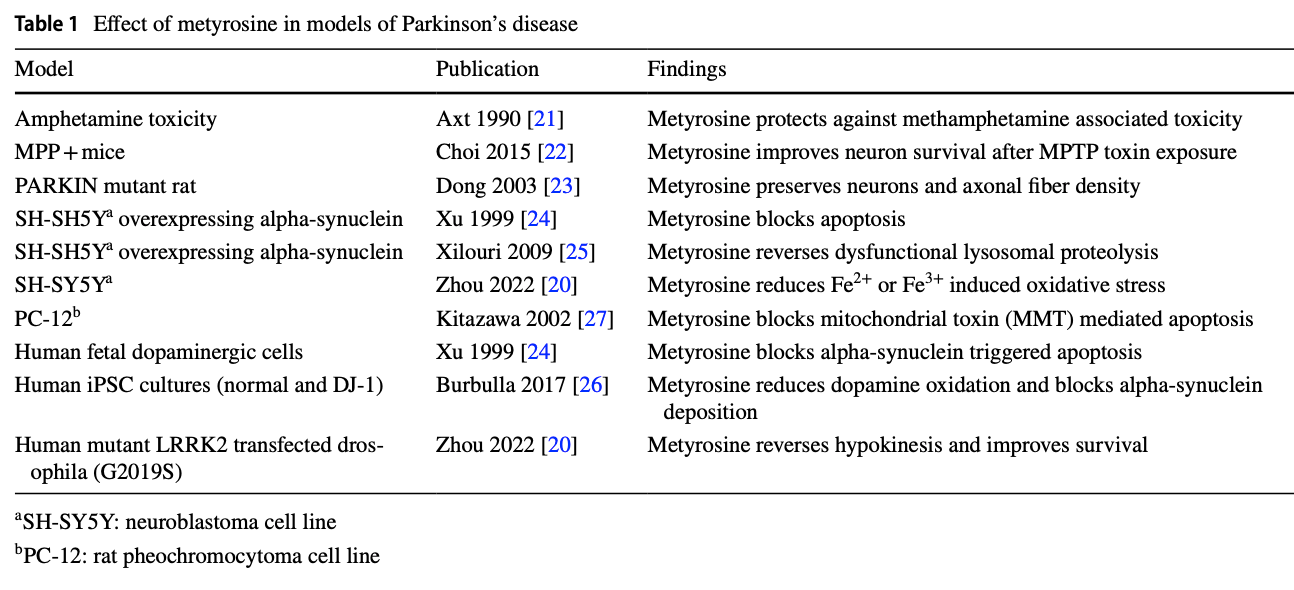Does science tell us to be optimists or pessimists?
Of course, the answer should start with us being grounded as realists, but then we have a choice. We can look for reasons to be an optimist or a pessimist.
From what I've watched, it seems really hard (if not impossible) to be very optimistic if you have Parkinson's. But while you read this, let's think about how science can lead us towards optimism.
Last week I wrote about the data and reasoning that show that dopamine is not deficient in Parkinson's - at least from the perspective of the dopaminergic neurons. That means this could be a target for treating the disease. One approach would be to restore the brain cells' ability to sequester it within the vesicles, but there are no such drugs ready to test in people. Another would be to reduce the amount of dopamine synthesized, and the drug metyrosine is available to test this approach in people.
This means we can test dopamine reduction therapy in people and get an answer soon. And as it turns out, this drug metyrosine, which we call RB-190 to emphasize its experimental nature for Parkinson's has been tested in 8 different laboratory models of Parkinson's - some of which have high dopamine and others with more alpha-synuclein - but each of which is used standardly by the scientific/medical community. And here is what each of those models showed (in 9 publications):

Pretty amazing - in each, reducing dopamine reversed the pathology measured. I did not pick out only the parameters that looked good. These were the variables studied and reported. For more information, the Journal of Neurology recently published a summary of the science supporting the promised of dopamine reduction therapy. Access it at: https://link.springer.com/content/pdf/10.1007/s00415-024-12526-7.pdf).
This is cause for a ton of optimism!
And beyond these findings, when I look at the disease from the perspective of the dopaminergic neurons, so much more makes sense to me than when I look through the lens of dopamine deficiency being the driver of disease.
So be optimistic. This has a great chance to work. We learn in science that we know an approach, data or hypothesis has merit when the experts have equipoise, meaning that they are unsure whether the final answer will be positive or negative. And that is where I am seeing more and more of the Parkinson's experts getting - from dismissive to uncertain. And that is exactly when clinical trials are appropriate if not necessary.
The data say we should be optimists. Spread that sentiment to others. And we will get this trial started and completed. Could I be wrong? Of course, but even in that case, by challenging accepted, fixed paradigms, I will have triggered others to think with an open mind about the possibilities.
Share This|
Sign up at: ParkinsonsDisease.blog |
About Jonathan Sackner-Bernstein, MD
Dr. Sackner-Bernstein shares his pursuit of conquering Parkinson's, using expertise developed as Columbia University faculty, FDA senior official, DARPA insider and witness to the toll of PD.
Dr. S-B’s Linkedin page
RightBrainBio, Inc. was incorporated in 2022 to develope dopamine reduction therapy for people with Parkinson's.
